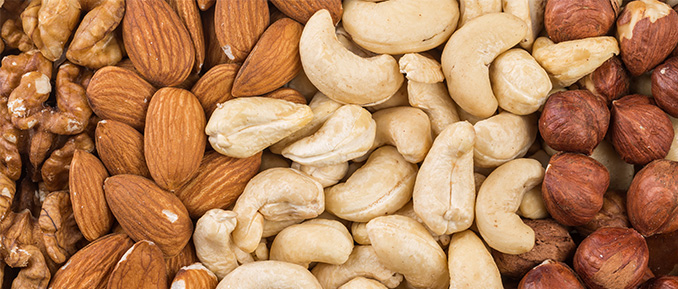
Male infertility is a huge problem affecting nearly 1 in 10 men of reproductive age. This issue is occurring alongside observed reductions in sperm count in men over the last several decades. Although the reasons for these observations are not yet fully understood, environmental toxicants and poor diet could both be involved by adversely affecting the integrity of sperm DNA.
DNA methylation is important not only for proper functioning of sperm but also the development of the fetus. Moreover, methylation patterns at specific genes such as H19, MEST, and SNRPN have been associated with fertility.
Disruption of normal sperm DNA methylation could be a target of damaging environmental cues like toxicant exposure or poor diet. This opens the potential for intervention using dietary components that affect the epigenome by altering DNA methylation.
In a recent publication, Salas-Huetos et al. asked this exact question. No randomized clinical trials had been previously conducted with the purpose of looking at how food components affect sperm DNA methylation. The authors did what is called a post-hoc analysis, meaning that additional experiments were added on to a successful previous study with the purpose of testing a new hypothesis. In this case, the authors wanted to determine whether short-term nut consumption altered DNA methylation patterns in sperm in the context of a western-style diet.
The FERTINUTS trial was a 14-week long parallel, randomized, controlled trial designed to assess how nut consumption affects sperm quality. Participants were instructed to consume a typical western-style diet while avoiding nuts or a western-style diet supplemented with 60 g of mixed nuts (almonds, walnuts, and hazelnuts) per day. The authors used a randomly selected sub-cohort of 72 participants from the FERTINUTS trial for the post-hoc analysis. The results of the parent FERTINUTS trial indicated that nut consumption improved sperm parameters including vitality, morphology, and motility in participants following a western-style diet. The authors then asked whether an epigenetic mechanism was responsible for these changes.
Nut consumption had no effect on global DNA methylation in sperm or methylation of specific features of the genome including CpG islands, non-CpG loci, and gene bodies. However, regional differences in DNA methylation were detected; 36 genetic regions were differentially methylated after consuming nuts for the entire study duration. 35 out of 36 differentially methylated regions were found to be hypermethylated CpG islands. The authors attempted to determine if the genes associated with methylation changes were involved in any common pathways but did not find significant results.
Finally, the authors employed an epigenetic age prediction algorithm designed for sperm in an attempt to determine differences in epigenetic age in sperm. Once again, no significant differences were found.
To summarize, consumption of 60 g of mixed nuts per day in context of a western-style diet caused significant region-specific changes in sperm DNA methylation in healthy males of reproductive age after 14 weeks. This was characterized by a differential methylation pattern in 36 regions of the genome, mostly consisting of hypermethylation of CpG islands.
The authors were surprised to find no difference in sperm epigenetic age since previous reports show methylation of these regions to be inversely associated with aging. Also, the parent clinical trial of this study showed that nut consumption improved sperm parameters. It could be that nut consumption is working by additional mechanisms like reducing DNA damage in sperm.
The authors suggested that nut consumption may have induced subtle changes in DNA methylation by providing folate or bioactive components that influence DNA methyltransferase activity. The second explanation may be more plausible since nuts provide only a small amount of folate compared to other foods like leafy greens, legumes, organ meats, and fortified grain products.
Although this study failed to show a causal link between DNA methylation and the mechanism by which nuts improved fertility rates in men, it would certainly be interesting to see if a longer feeding trial produced more robust results that could be used to further tease out this mechanism. The authors’ conclusion that a dietary intervention caused changes to specific areas of the sperm epigenome is very intriguing and begs the question of whether other types of dietary interventions would affect the same regions.
References:
Salas-Huetos A et al. (2020). Sperm DNA methylation changes after short-term nut supplementation in healthy men consuming a Western-style diet. Andrology.
Salas-Huetos A. et al. (2018) Effect of nut consumption on semen quality and functionality in healthy men consuming a Western-style diet: a randomized controlled trial. Am J Clin Nutr.108 (5):953–962.


